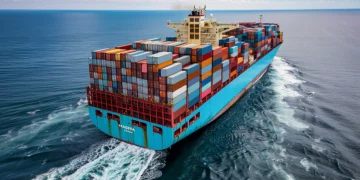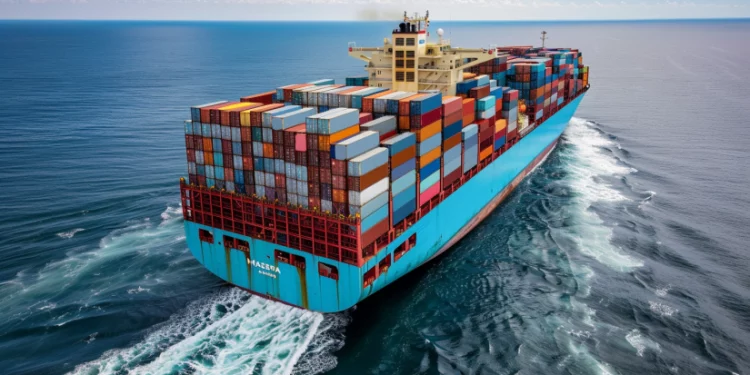Dark clouds are gathering over the horizon for major shipping lines. A recent announcement by the Federal Maritime Commission (FMC) in the United States has intensified scrutiny of potential anti-competitive practices within the ocean freight industry [The Maritime Executive, FreightWaves]. The FMC has authorized an investigation into the business practices of several major container carriers, raising concerns about a potential price-fixing scheme.
This development comes amidst a period of significant turmoil in the ocean freight industry. Here’s a breakdown of the situation:
- Soaring Freight Rates: Ocean freight rates have skyrocketed since the beginning of the pandemic, driven by factors like port congestion, equipment shortages, and a surge in demand for goods. This has put a significant strain on businesses that rely on ocean freight for imports and exports.
- Allegations of Collusion: Shippers and industry experts have raised concerns that some shipping lines might be colluding to artificially inflate freight rates. The FMC’s investigation will focus on examining these allegations and determining if any anti-competitive practices have been employed.
- Impact on Businesses: High freight rates coupled with potential price-fixing could have a devastating impact on businesses, especially small and medium-sized enterprises. Increased costs of transporting goods can eat into profits and ultimately translate to higher prices for consumers.
The FMC investigation has received widespread support from various stakeholders in the industry:
- Shipper Advocacy Groups: Shipper organizations have long called for increased scrutiny of ocean freight rates and welcomed the FMC’s investigation as a necessary step towards ensuring a fair and competitive marketplace.
- Manufacturers and Retailers: Manufacturers and retailers who rely on ocean freight for their supply chains are also hopeful that the investigation will shed light on potential anti-competitive practices and lead to lower freight rates.
However, the investigation is likely to be a complex and lengthy process:
- Gathering Evidence: The FMC will need to gather a substantial amount of evidence to prove any wrongdoing on the part of the shipping lines. This could involve reviewing internal documents, communication records, and pricing data.
- International Cooperation: As the investigation involves major international shipping lines, cooperation from regulatory bodies in other countries might be necessary.
- Potential Legal Battles: If the FMC finds evidence of anti-competitive practices, it could lead to legal battles between the regulatory body and the shipping lines, potentially delaying any corrective actions.
The FMC’s investigation marks a significant development in the ongoing saga of high ocean freight rates. The outcome of this investigation could have a far-reaching impact on the entire global supply chain. While the process might be lengthy, it represents a crucial step towards ensuring a fair and competitive environment in the ocean freight industry.























